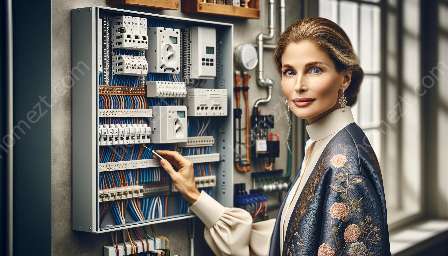As an electrician or domestic service provider, understanding electrical code compliance is crucial. It ensures the safety of electrical systems, protects against potential hazards, and promotes efficient energy usage. This comprehensive guide will cover the basics of electrical code compliance, relevant regulations, and the impact of compliance on your work. By the end, you'll have a clear understanding of why adherence to electrical codes is essential for both your profession and the well-being of your clients.
The Importance of Electrical Code Compliance
Electrical code compliance is a set of rules and standards established to regulate the installation, design, and use of electrical systems within buildings. These codes are developed and updated by national and local authorities to ensure safety, reliability, and energy efficiency. For electricians and domestic service providers, compliance with these regulations is not only a legal requirement but also a matter of professional responsibility and ethical practice.
Ensuring Safety and Preventing Hazards
One of the primary reasons for electrical code compliance is to guarantee the safety of electrical installations. Adhering to the codes helps in preventing electrical accidents, shocks, and fires, which can pose significant risks to property and human life. As an electrician, following these regulations is fundamental to your role in maintaining the safety and well-being of the clients you serve.
Promoting Efficient Energy Usage
Electrical codes also aim to promote energy efficiency and sustainable practices. By complying with these standards, electricians and domestic service providers contribute to reducing energy wastage and environmental impact. This not only benefits the clients by lowering energy costs but also aligns with global efforts to conserve natural resources and minimize the carbon footprint.
Relevant Regulations and Codes
Various organizations, such as the National Electrical Code (NEC) in the United States, publish comprehensive codes that specify the minimum requirements for electrical installations. These codes encompass considerations for wiring, grounding, overcurrent protection, and equipment usage, among other crucial aspects. As an electrician or domestic service provider, familiarizing yourself with these regulations is essential to ensure compliance in your work.
Keeping Up with Code Updates
Electrical codes are continuously revised and updated to reflect technological advancements, safety standards, and industry best practices. Staying informed about these changes is vital for electricians and domestic service providers to deliver services that meet the most current requirements. Regular training and professional development help in staying abreast of the latest code updates and ensuring that your work aligns with the evolving industry standards.
The Impact of Compliance on Electricians and Domestic Services
Adhering to electrical code compliance has a substantial impact on the daily work and reputation of electricians and domestic service providers. Compliance positively influences the quality and safety of electrical installations, boosting the trust and satisfaction of clients. Moreover, it establishes a professional standard that sets competent and responsible practitioners apart from those who neglect industry regulations.
Enhancing Client Trust and Satisfaction
When clients know that their electrical installations comply with the relevant codes, they can have confidence in the safety and reliability of the work. This fosters trust and satisfaction, leading to strengthened client relationships and potential referrals. Communicating the adherence to electrical codes also demonstrates your commitment to professional excellence and ensures clients that their best interests are prioritized.
Building Professional Reputation
Compliance with electrical codes is a hallmark of a reputable and reliable electrician or domestic service provider. It distinguishes you as a knowledgeable and responsible professional who upholds industry standards. Such a reputation not only attracts more clients but also enhances your standing within the community and the industry, ultimately leading to continued success and growth in your career.




















































